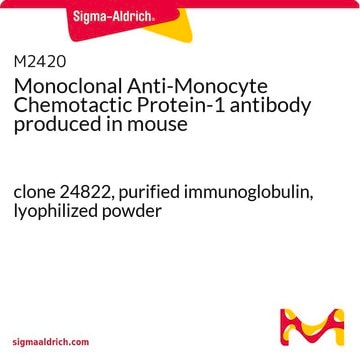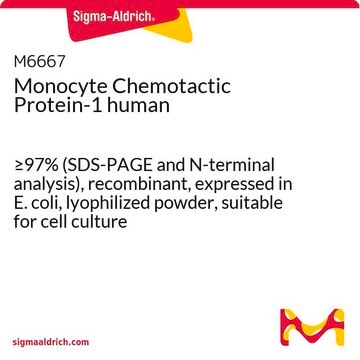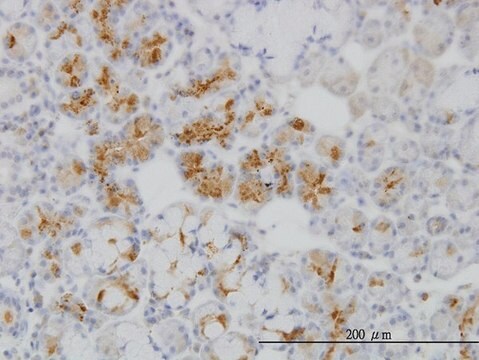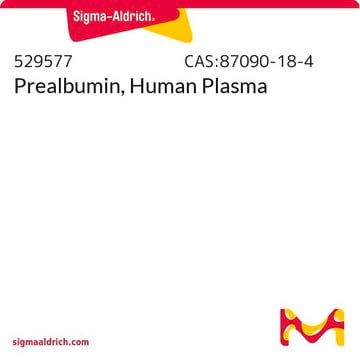R9388
Retinol Binding Protein from human urine
buffered aqueous solution
Sinónimos:
CRBP, Cellular retinol binding protein, RBP, RBP-1, Retinol Binding Protein I
About This Item
Productos recomendados
biological source
human urine
Quality Level
assay
≥85% (SDS-GE)
form
buffered aqueous solution
technique(s)
cell culture | embryo: suitable
transfection: suitable
UniProt accession no.
shipped in
dry ice
storage temp.
−20°C
Gene Information
human ... RBP1(5947)
General description
Application
- as one of the protein in microinjecting mesencephalic cavity of chicken eggs to monitor embryonic cerebrospinal fluid/embryonic serum protein transfer
- as an additive in basal medium for RNA transfection experiments
- in the antibody-derivatized affinity pipettes preparation for the capture of affinity proteins
Biochem/physiol Actions
Physical form
Storage Class
10 - Combustible liquids
wgk_germany
WGK 2
flash_point_f
Not applicable
flash_point_c
Not applicable
ppe
Eyeshields, Gloves, multi-purpose combination respirator cartridge (US)
Elija entre una de las versiones más recientes:
Certificados de análisis (COA)
¿No ve la versión correcta?
Si necesita una versión concreta, puede buscar un certificado específico por el número de lote.
¿Ya tiene este producto?
Encuentre la documentación para los productos que ha comprado recientemente en la Biblioteca de documentos.
Nuestro equipo de científicos tiene experiencia en todas las áreas de investigación: Ciencias de la vida, Ciencia de los materiales, Síntesis química, Cromatografía, Analítica y muchas otras.
Póngase en contacto con el Servicio técnico






